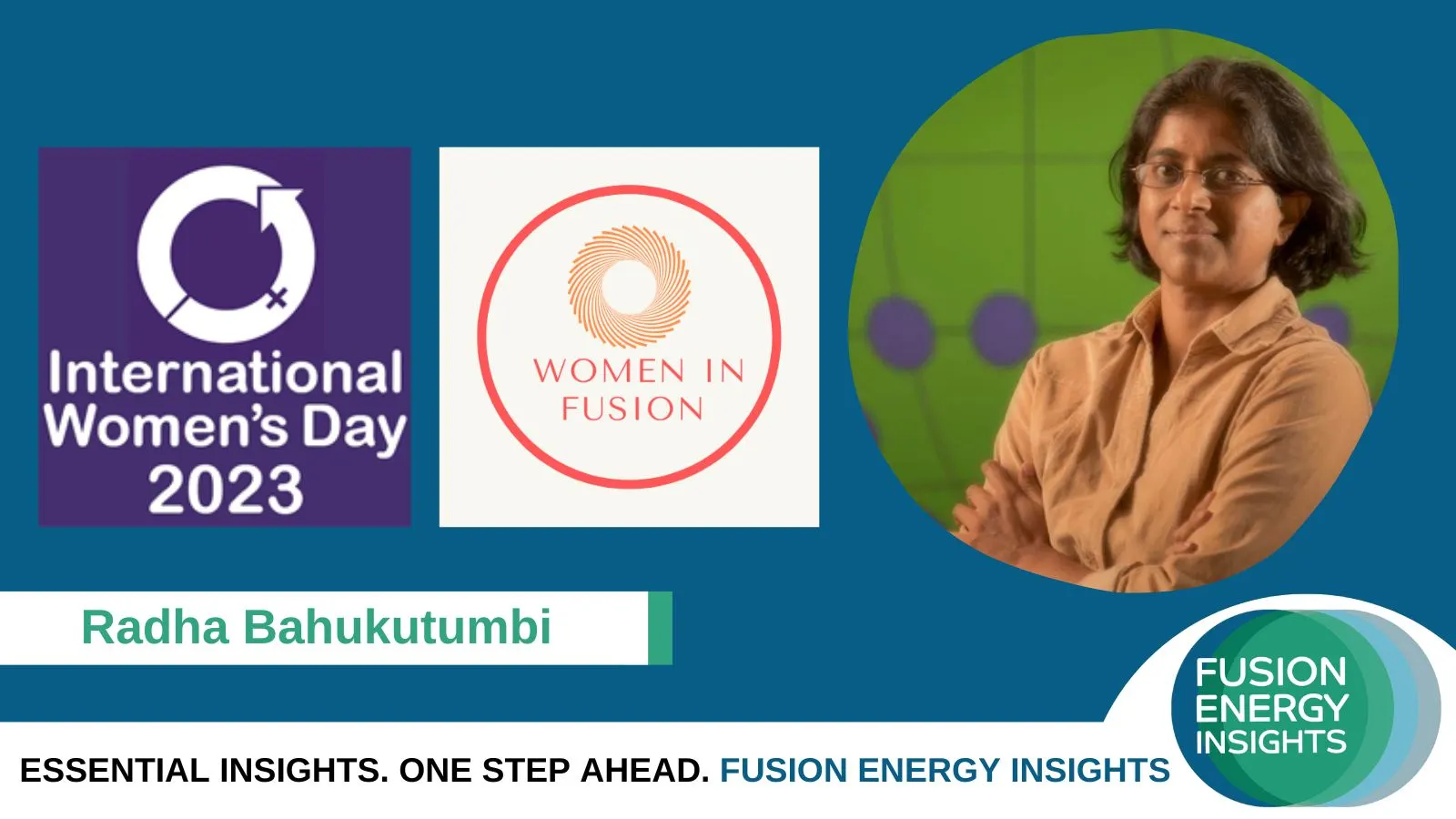Women in Fusion Profile: Radha Bahukutumbi
As part of International Women's Day 2023, Fusion Energy Insights are spotlighting some of the women who work in the fusion industry.
Radha Bahukutumbi is currently a Distinguished Scientist at the University of Rochester’s Laboratory for Laser Energetics (LLE). We asked her to tell us more about her work, career path and her advice on how to get into the fusion world.

About Radha
Radha's current interests include the understanding of the physics of laser-energy coupling and growth of nonuniformities on implosion performance in direct-drive implosions. She also enjoys identifying challenges related to nuclear astrophysics that can be addressed using high-power lasers.
Radha has served on several panels and committees reviewing inertial confinement fusion, including as an advisor to the Under Secretary of Energy for Science on the National Ignition Campaign. Radha also leads a group of women at LLE (Women in Science and Engineering at LLE) with the goals of hiring, mentoring, and retention. She received the Fusion Power Associates Leadership award in 2021. Radha is a fellow of the American Physical Society.
What in fusion do you work on?
I work in Inertial Confinement Fusion (ICF). It’s a laser-driven approach to implode capsules to produce high densities and temperature that are needed for fusion reactions. My work is focused on the science of ICF and in particular, how to predictably manipulate the properties of the imploding material to create the necessary conditions. I’ve written codes to model implosions, designed and interpreted experiments on the OMEGA laser at the University of Rochester and the National Ignition Facility to gain insight into the physics of laser-driven implosions.
Can you tell us about your career path and how it led to fusion?
My background is in computing and nuclear physics. As part of my PhD thesis, I calculated decay rates involving weak interactions for various nuclear processes including those relevant for supernovae or those that might shed light on the neutrino mass, called double-beta decay. It was a very exciting time as high-performance computing was becoming main stream in the sciences and I got to use path integrals, in highly multidimensional spaces on new and upcoming computing architectures and calculate fundamental properties of nuclei.
I joined the ICF program at the LLE at the University of Rochester because the science was compelling. In addition to modeling, access to OMEGA allowed for me to tie together simulation and experiment and push the field forward. The field offered many opportunities to stay challenged.
Can you share your most exciting fusion moment?
The most exciting moment has to be the result on the National Ignition Facility on Dec 5th of 2022 along with the result on Aug 8th in 2021. The neutron yields from the implosions on shots on these days showed an important proof-of-principle that all of us in ICF were looking for – that is possible to set up a burning plasma in a laboratory environment. These results were many decades in the making and has injected new life into ICF and more recently Inertial Fusion Energy.
Any advice for others looking to get into fusion?
There are many opportunities to be creative in fusion, whether it is technology development, engineering, experimental or theoretical work. Fusion is not for the impatient. Experiments are large and complex involving many moving parts. However, the satisfaction when you achieve something, whether it is a new concept that you’ve learned or if you’ve built something that has shed light on ICF, is immeasurable.
There are many areas you could go into if you feel strongly about fossil-powered energy – battery technology, renewables, grid infrastructure etc. Fusion energy is arguably the holy grail of energy solutions and can completely redefine the energy landscape. Our work towards fusion energy is just beginning and so the opportunities in this field are immense. Don’t limit yourself into thinking that you need to be highly specialised to enter this field.
Fusion energy can benefit greatly from a diverse group of people bringing their unique expertise and perspectives to tackle the challenge. Just like I came from a different field altogether, if you find fusion interesting, there is always a place for you regardless of whether you are an engineer or even someone who has studied fundamental science.
Share something about yourself and what you do outside of work.
I am of Indian origin and am a self-professed foodie. I love cooking and eating Indian food. I also play Indian classical music on an instrument called the Veena – a stringed instrument from Southern India. It’s a very old instrument that is supposedly been written about in Indian literature going back as far as 800 BCE. I also love the history of science. I just finished a book on Galileo and the modern scientific method. These days I am reading about Indian contributions to science and math including the role of Indian mathematicians in bringing zero to mainstream math. Currently, I am writing blurbs spotlighting women in sciences and math for LLE as part of the Women’s History Month.
